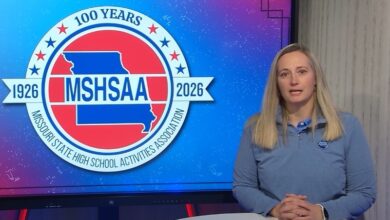Missouri cites Down syndrome provision in defending pro-life law in federal court
Attorneys for the state of Missouri focused on Down syndrome diagnoses as the battle over the state’s new pro-life law continued in federal court on Tuesday.
“We have to ask ourselves who we want to be,” Attorney General Eric Schmitt told reporters following the hearing. “Do we want to be a nation that pressures women and families into believing the life of an individual with Down syndrome is not worth celebrating? Or do we believe that this diagnosis should not be an automatic death sentence and that we shouldn’t target an entire group of people simply because they have a certain trait?”
Schmitt’s office argued the case before the Eighth Circuit Court of Appeals, focusing the debate on provisions in the bill restricting abortions based solely on the diagnosis of Down syndrome. Schmitt said the angle was a relatively new issue before the court and argued the restriction emphasized all life is sacred.
Schmitt contrasted Missouri’s legislation with the Texas law allowed to take effect last month. That measure allows individuals to sue abortion providers and does not include a section regarding those diagnosed with Down syndrome.
READ: Here’s why Texas chose its strategy on pro-life law
Reproductive Health Services of Planned Parenthood of the St. Louis Region, the only abortion provider left in Missouri, initially sued, prohibiting HB 126 from going into effect. The clinic’s lawyers argued the bill, which also would restrict abortions after eight weeks, constituted a ban in the state and violated precedents set by the U.S. Supreme Court.
HB 126, signed into law by Gov. Mike Parson in 2019, included “nestled” components placing additional restrictions at 14, 18 and 20 weeks and did not allow for exemptions for rape or incest survivors. Violation of the measure would be a class B felony.
A federal judge blocked the bill from being implemented the day before it was set to go into effect in 2019, a decision that was appealed to the Eighth Circuit Court of Appeals. A three-judge panel stymied the law in June, upholding the injunction based on the state’s argument
hat the language constituted bans on abortion.
Schmitt appealed the decision to the U.S. Supreme Court the following month. However, in a rare move, the appeals court granted a rehearing en banc on its own motion, meaning it would rehear the case as a full court.
–Alan Goforth | Metro Voice








